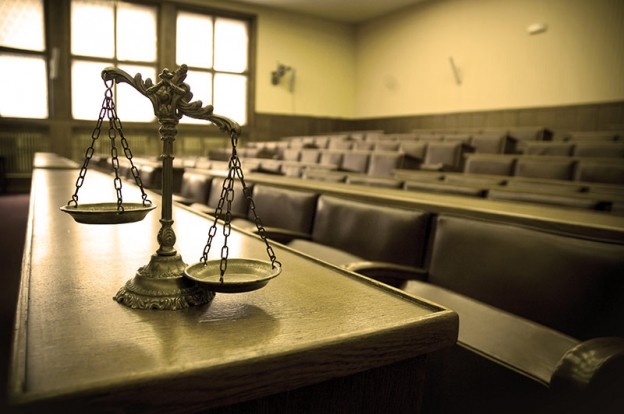Being an effective expert means “Never forgetting that your job is to help the jury do their job.” Even the Rules of Evidence recognize that experts help the jury, and helping the jury is what testifying as an expert is all about.
Several years ago, I was fortunate enough to hear Judge Hiller Zobel speak at the SEAK conference. Judge Zobel made some suggestions that are worthy of repeating. First of all, leave your ego at the door. Testifying in court is not an opportunity to show the jury how smart you are, nor is it an opportunity to try to impress them with your vocabulary. Instead, it is a time to provide the jury with helpful analogies that will assist them in understanding the technical material you have mastered.
Think back to the teachers and professors you admired most in high school, college and post-graduate training. They were the men and women who took the time to think about the information they had to convey and presented the material in a well-organized, interesting and understandable way. They were not concerned with impressing you with their understanding of the material; they were determined to teach it to you so you could acquire it, and hopefully pass it on to others.
One woman physician I know told me she presents her potential testimony to her pre-teen and teenaged children. If they don’t understand what she was saying, they give her an “Oh, Ma”, and she goes back to the drawing table. If they tell her, “Hey, Mom, that’s cool”, she knows she was successful.
Jurors are comprised of people from all walks of life. Some have been to high school and not gone further, others have been to college. Either way, there is no typical juror, and there is no “standard education” for jurors. The one thing that I do know about jurors is that they are very serious about doing their job correctly and take great pride in reaching a fair and well-reasoned decision. As the testifying expert, you are among those who supplies the answers to some of the questions they have that contribute to that decision.
The one thing that has always impressed me about lawyers is how familiar they are with the details of the case. Lawyers seem to remember every date and every time. Jurors notice this too. When jurors have been polled after trial, many jurors have commented on how well-prepared the lawyers were. Therefore, if you want to impress the jury, make like a Boy Scout and “Be Prepared.”
Being prepared means being familiar with the facts of the case, and being able to handle questions on cross-examination with facility and aplomb. If you are not an expert in your field and can’t answer fundamental questions about your discipline, you should not be in court. You are a charlatan. This means never representing yourself as an expert in a field in which you are unfamiliar. A little bit of knowledge is dangerous, and you will get slaughtered by the opposing attorney on cross-examination.
If you think you can “fake it,” you cannot. It is not the attorney who will be making up the questions, it is the real expert on the other side.
Last year at the forensic sciences meeting, a colleague of mine asked me to quiz one of the toxicologists in his laboratory on the basics of narcotic pharmacology. I asked him three basic questions, and he could not answer any of them. The young man is far more adept at working at the laboratory bench than I am, but he does not have a good working knowledge of basic narcotic pharmacology. Don’t get caught in that trap. If the expert on the opposing side of the case really knows his/her stuff better than you do, you could be in for a trip to the woodshed.
Another good way to prepare to testify is to prepare the questions you want the attorney to ask you, then think long and hard about how to answer them succinctly. In the courtroom, less is more. Try to answer in “sound bites.” Don’t drag on and on.
Do not be afraid of saying, “I don’t know.” After all, who among us knows it all. If you don’t know the answer to a question, say so. The jury will appreciate your honesty and recognize that the questions you answered, you probably did know what you were saying. If you make an error–Speak up and correct yourself. “Excuse me, I think I mis-spoke. It was 8 am not 8 pm that the accident occurred.”
Please, be yourself. Don’t try to be someone else. You’re not Quincy, and you’re not Perry Mason. Don’t make jokes, respect the sanctity of the courtroom. If something funny is said or happens, it is okay to laugh. But the courtroom is no place for levity. Someone was hurt, died or stands to lose a lot of money. Be respectful. Dress neatly and professionally, and do not wear expensive jewelry. Treat everyone you encounter in the parking lot, the line in front of the metal detector, and in the hallways as politely as possible. You never know who they are, or if they are going to show up in the jury box while you are on the witness stand.
Finally, I’ll end where I began. You are in court to help the jury determine the facts at issue. Do your homework, be prepared, and teach the jury what they need to know. If you master this simple, yet sophisticated approach, you will make an outstanding contribution to the justice system and can hold your head up high even when the cross-examining attorney is trying to destroy you. And, I say to you, the measure of a person is grace under pressure, and as Rudyard Kipling said (generically), “If you can keep your head when everyone around you is losing theirs, then you are a man my son!”




